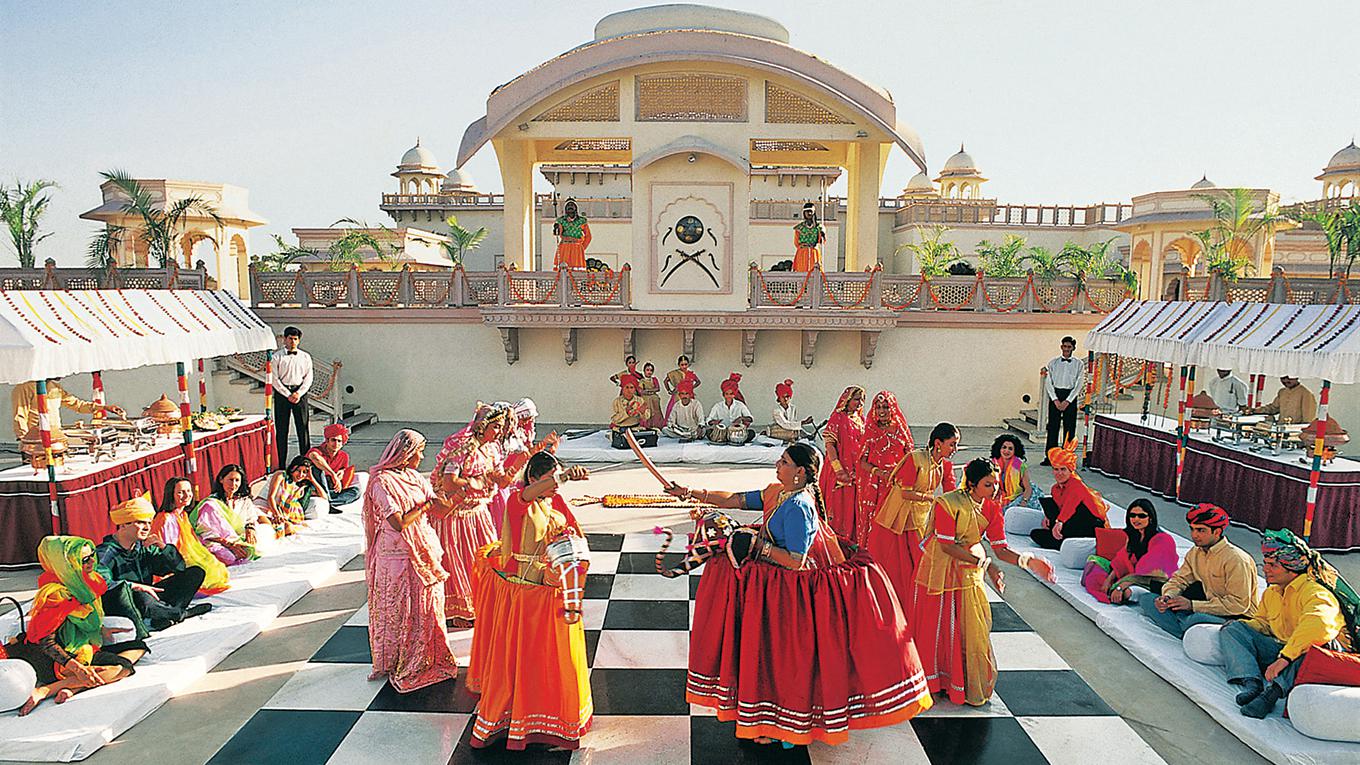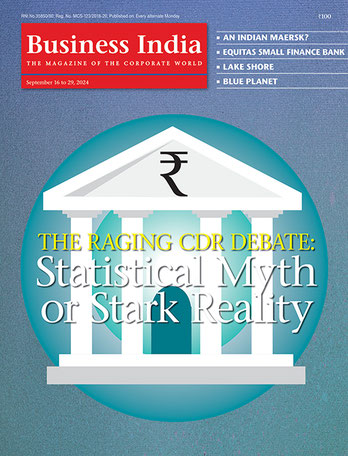-

Promoting cultural heritage
Hotels, catering and tourism business is a labour-intensive economic activity and livelihoods-generating sector. It has the potential to play a significant role, especially in relatively small/ remote tourist destinations by consciously building capacities of communities and enabling access to jobs and value chains linked to the growing tourism and service economy. To play a catalytic role in this regard, Indian Hotels Company Ltd (IHCL) has now crystallised its CSR initiatives under one umbrella brand: Pathya, which enables its guests and key stakeholders to meaningfully engage and contribute to the environment and society at large. Its apex level programmes are rooted in material macro factors, affecting business and echoing its business values, socio-cultural and environmental imperatives. The focus areas of livelihoods, conservation, affirmative action and welfare are inspired by the United Nations Sustainable Development Goals. IHCL also actively engages in travel, tourism and hospitality associations like The International Tourism Partnership, World Travel and Tourism Council, World Tourism Forum Lucerne, Experience India Society, and CII – fostering engagement with macro-issues and private-public dialogues relevant to the industry. Social inclusion manifests in several forms across their hotels, training and recruitment practices, value chain and experiences. IHCL has a practice of facilitating 45-days long community immersion stints for its young freshly inducted managers, over the last many years; further nurturing this culture for volunteering and giving back to society.
-
IHCL has a practice of facilitating 45-days long community immersion stints for its freshly inducted managers
In the last year alone, 33 per cent of water consumed in IHCL’s global operations was reused and recycled onsite, while 21 per cent of its total energy consumption was from renewable energy, such as wind and solar power, saving 55,454 tonnes of CO2 emissions. An estimated two million plastic straws were eliminated from IHCL’s ecosystem, leading to 3,410 kg CO2 EQ emissions being avoided.
The company has invested in the conservation of sites of national and historic importance, amongst which is the Gateway of India in Mumbai, The National Railway Museum in New Delhi and select Ghats of Varanasi. The concepts and designs of many hotels and restaurants like the ones in Rishikesh, Guwahati, Bekal, Taj Safaris lodges, restaurants like Karavalli, Konkan Café, Tiqri, The Beach House and the ethnic culinary fares that some of these uniquely positioned restaurants serve are inspired by the fabric, culture and people of the regions they serve in.
The Tiqri restaurant in Mumbai, for instance, has possibly the largest Thikri mirror panel in the world -- a 60 feet high ‘Tree of Life’ which has been authentically crafted by traditional artisans from Udaipur. The piece that took seven months to complete is the focal point of the restaurant and is inspired from the Flame of the Forest Tree. Many more IHCL hotels partner with traditional artisans, culture troupes, home cooks and enables showcasing their unique heritage through the product and service offerings; providing authentic experiences to tourists and guests.
Tribal empowerment:
Over 14.7 crore villagers in India live in or around forests and 275 million villagers depend heavily on forests for livelihoods. However, post the Indian Forest Act 1927, the Wildlife Protection Act 1972 and the Project Tiger initiative by the government of India in 1973; very little has been done for strategic re-skilling and livelihoods of these communities. IHCL has collaborated with Last Wilderness Foundation and Panna Forest Department to pilot an inclusive tourism model; partnering the Pardhi (tribal) youth groups near Panna National Park to lead tourist trails; preventing next generation of Pardhi community members from getting lured into global poaching rings. The uniqueness of the ‘Walk with The Pardhis’ initiative is that the community’s natural entrepreneurial streak and flair for tracking animals and reading the forests are leveraged to create an alternate livelihood path linked to the growing tourism in this region.
Along with building on their existing strengths and enabling alternative livelihoods; this project furthers preservation and promotion of natural and cultural heritage and wildlife conservation. At another location the Taj Safaris teams have built capacities and provided required equipment for a tribal women’s Self Help Group to run a snacks joint near the Kanha National Park, enabling them to partake from the gains of the tourism the economy in that region. Other hotels near forests like the ones near Corbett, Bekal, Coorg and Guwahati promote many local livelihoods through engagements with home cooks, village trails, for-impact enterprises and artisans. Taj Bengal, Kolkata and Vivanta Guwahati have been involved in promoting the culinary heritage of native tribes from different part of the country in association with Samvaad – an annual platform for native communities, congregating in Jamshedpur at Tata Steel.
Inclusive supply chains:
IHCL has been furthering the Tata Affirmative Action Programme since over a decade; focusing on enabling employability, employment and entrepreneurship opportunities and access for socially backward communities and tribal groups. IHCL also offers opportunities to micro-enterprises and income generation projects of for-impact organisations to supply products to its hotels and restaurants – as a part of its supplier diversity and inclusion initiatives. Its target communities include economically weaker sections of women and youth, cancer-affected families, communities from scheduled castes and scheduled tribes, differently-abled and traditional artisans. Many of its hotels procure items like laundry bags, newspaper and slipper bags, etc, from enterprises, benefitting these community groups. Apart from this programme, IHCL nurtures several volunteering platforms and opportunities with over 6,600 volunteers across its locations undertaking 187+ activities in 2018-19 including cleanliness drives; workshops for skill development, industrial exposure for less privileged/differently-abled youth and other activities supporting charitable and welfare organisations.
All these programmes go beyond charity. They leverage business strengths, value chains, partner networks and employee volunteering to enable capability development, empowerment and socio-economic inclusion of cultures and communities that IHCL serves.
The Taj Public Service Welfare Trust has been supporting programmes benefiting defence forces and disaster response across India, one of the recent instances being the support extended to families affected by the Kerala and Kodagu floods. This Trust continues to provide aid to those impacted by the 26/11 terror attack and subsequent bomb blasts in Mumbai. Several of its hotels also undertake local needs-based charitable and volunteering activities serving the neighbourhood’s marginalised communities.
Biogas
BioEnergy will showcase its innovative biogas technology in India
Mobility
Ather aims to produce 20,000 units every month, soon
Green Hydrogen
German Development Agency, GIZ is working on a roadmap for a green hydrogen cluster in Kochi
Renewable Energy
AGEL set to play a big role in India’s carbon neutrality target



















